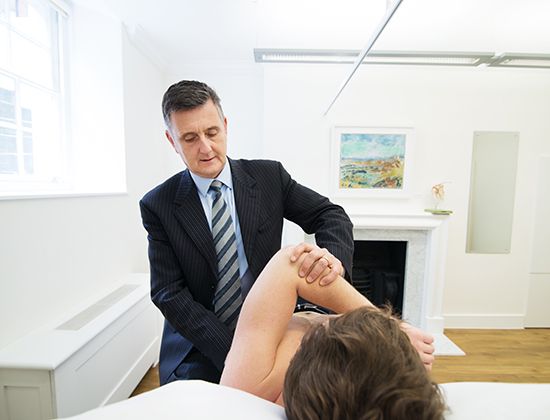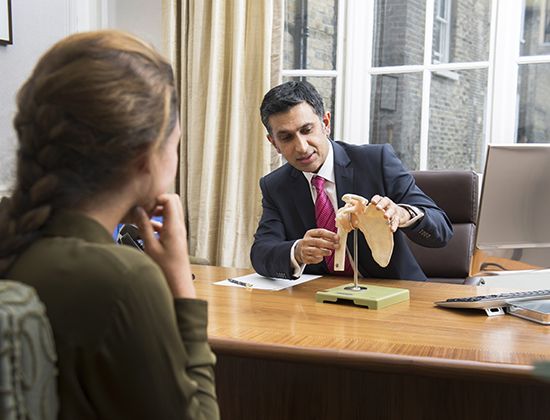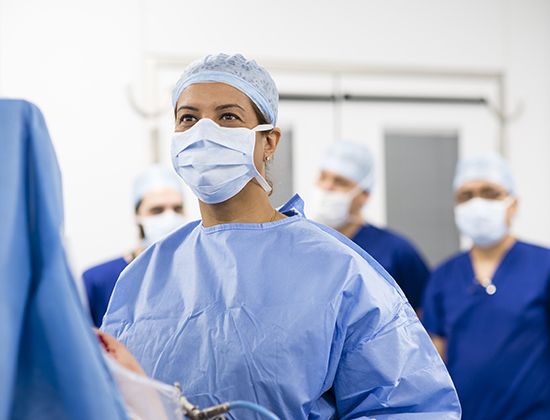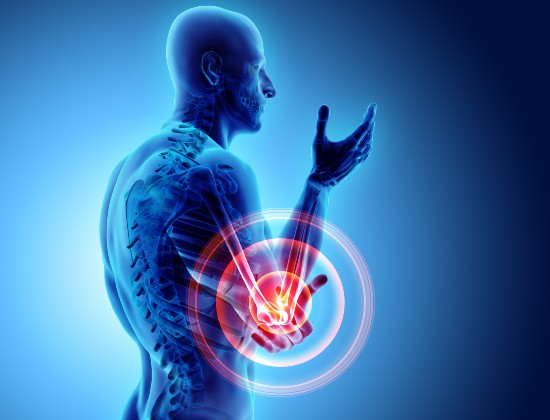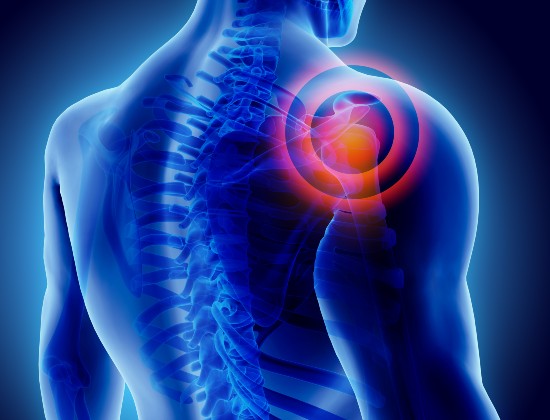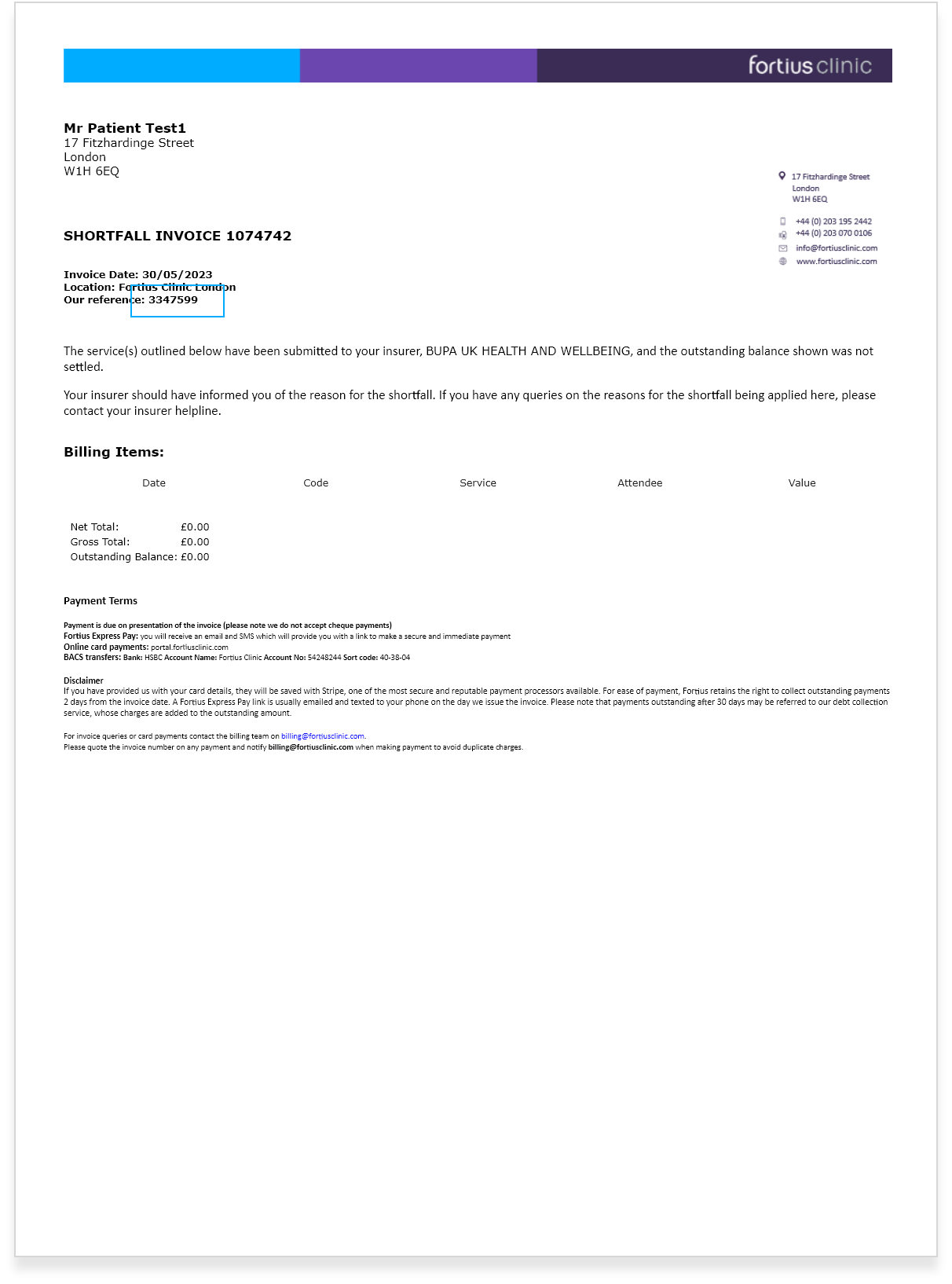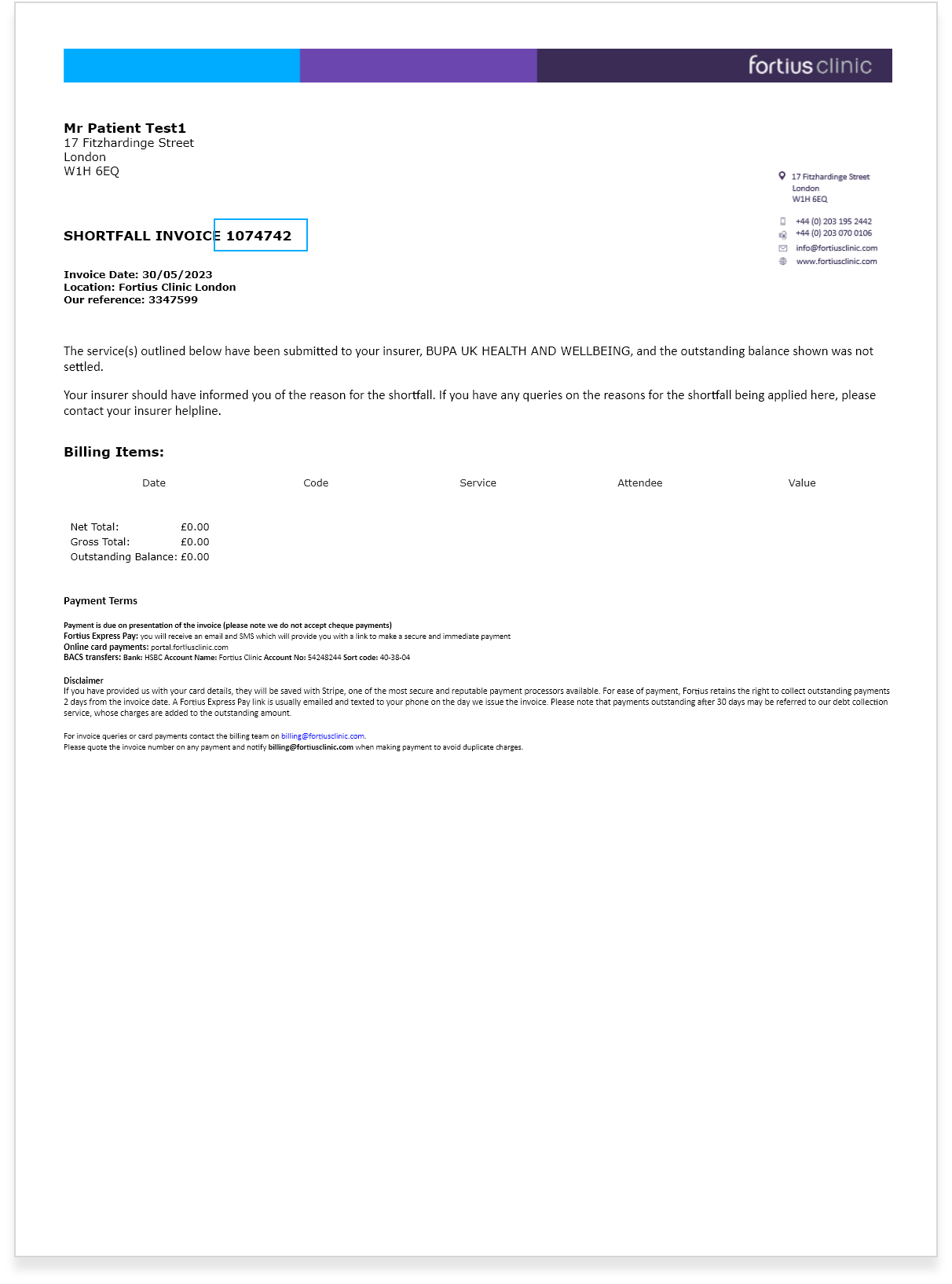Adhesive capsulitis (frozen shoulder)
Adhesive capsulitis or a ‘frozen shoulder’ causes pain and stiffness in the shoulder.
The top of the upper arm bone (humerus) forms the ‘ball’ part of the ball and socket shoulder joint which is surrounded by a layer of tough connective tissue, known as the shoulder capsule. This ensures the upper arm remains centred within the socket, and is filled with lubricating synovial fluid to help the shoulder rotate smoothly.
Affecting around two per cent of (mainly middle-aged) people, a frozen shoulder is the result of the shoulder capsule becoming thicker and tighter, with insufficient synovial fluid to allow the joint to move freely.
How is it caused?
Although no one is sure what causes a frozen shoulder, some people are more likely to develop the condition than others. It is more common in people who have diabetes (around 10-20% may be affected) and other conditions including Parkinson’s disease and cardiac disease, hyperthyroidism and hypothyroidism. It can affect people whose shoulder has been immobilised for a while because of injury or surgery to the shoulder for other conditions.
What are the symptoms?
The condition usually develops in three stages:
- Stage 1: you may experience increased pain in the shoulder during this ‘freezing’ stage, with loss of movement. This stage can last between six weeks and nine months
- Stage 2: although you may have less pain, your shoulder remains stiff – or ‘frozen’ – making everyday activities difficult
- Stage 3: during this ‘thawing’ stage, which can take between six months and two years, your shoulder returns to normal
How is it diagnosed?
Having discussed your symptoms and assessed your range of motion and pain levels, the specialist’s diagnosis is usually backed up by an X-ray which can also show up other problems such as osteoarthritis and, in some cases, an MRI scan to show the extent of the damage to soft tissues around the joint.
How is it treated?
Non-operative treatment: most people find that a gentle exercise programme, combined with anti-inflammatory pain relief (if advised by your doctor) is enough to improve movement in the joint. You may also be offered steroid injections into the shoulder joint to reduce pain and inflammation.
Surgery: usually very successful, surgery is typically carried out using arthroscopy. It involves cutting through stiff parts of the joint capsule and is usually combined with manipulation of the joint to improve the results further.
How long does it take to recover?
Recovery rates vary with the type of treatment you have had but can take from six weeks to three months. It’s important to follow your exercise plan to achieve the best results; however, in some cases people do not regain their full range of movement.
Important: This information is only a guideline to help you understand your treatment and what to expect. Everyone is different and your rehabilitation may be quicker or slower than other people’s. Please contact us for advice if you’re worried about any aspect of your health or recovery.
